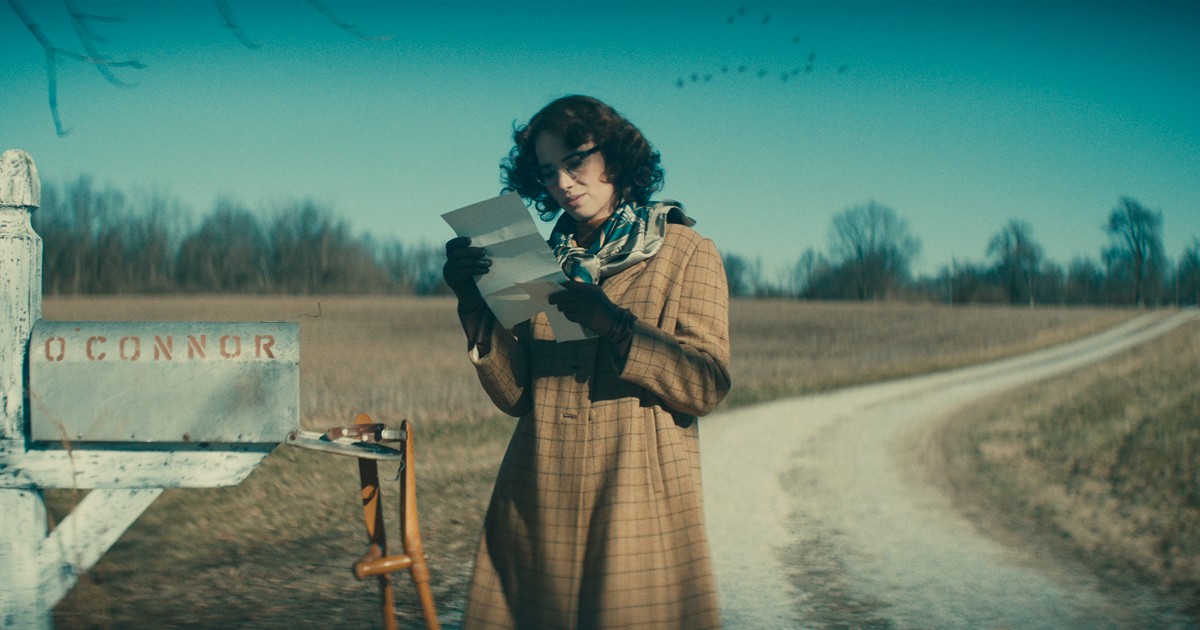“The very centre and core of the whole Bible is the doctrine of the grace of God.”
—J. Gresham Machen
There’s an especially moving scene in Ethan Hawke’s latest directorial effort, Wildcat, about American novelist and short story writer Flannery O’Connor, in which she is visited by a priest (played by Liam Neeson in a small role). Bedridden and suffering, O’Connor’s spiritual anguish intertwines with the physical torment of lupus, the disease that would prematurely claim her life. A devout Catholic, O’Connor confides in the priest, expressing her yearning for grace—acknowledging its presence, yet lamenting its elusiveness: “I long for grace. I see it. I know it’s there, but I can’t touch it.” This profound line not only captures the essence of O’Connor’s intricate prose but also delves into the profound dichotomy between the fractured, sinful world she portrays in her narratives and the unattainable redemption her characters seek.
O’Connor’s literary legacy is primarily defined by her mastery of the short story form, in stories such as A Good Man Is Hard to Find, A Temple of the Holy Ghost and Good Country People. Unlike more apologetic fiction writers such as C.S. Lewis, who seek to preach through their creative works, O’Connor wrote in a dark, sardonic Southern Gothic style, characterized by its regional setting and grotesque characters, thrust into bizarre and often violent predicaments.
Her protagonists, flawed and morally ambiguous, epitomize the human condition’s inherent brokenness. Yet O’Connor neither romanticizes nor condemns her characters’ imperfections. Instead, she intricately weaves her Catholic morality into the narrative fabric, offering nuanced reflections on themes of sin, redemption and divine grace. Her writing, more closely resembling the books of Judges and Lamentations than the Gospels, challenges readers to confront the complexities of faith and the harsh realities of existence.
Best known as an actor, Hawke demonstrates a keen interest in stories that grapple with existential questions and spiritual crises. His critically acclaimed portrayal of Reverend Ernst Toller in Paul Schrader’s First Reformed (2017), in which he plays a priest wrestling with a crisis of faith in light of congregational indifference and impending ecological disaster, might be the best recent example of Hawke’s engagement with such material.
In Wildcat, Hawke’s vision engages with a similar spiritual crisis from behind the camera, crafting a visual narrative in which O’Connor struggles to reconcile her convictions with the dark, fallen world around her. Hawke accentuates the inherent tension between reality and fantasy, mirroring O’Connor’s own struggles to reconcile her literary aspirations with the constraints of her physical and creative limitations. Hawke and co-writer Shelby Gaines embark on a cinematic exploration of O’Connor’s life and literary oeuvre in a way that attempts to honour the complex beauty of her work.
The film resists conventional biopic film tropes in favour of a narrative that mirrors the author’s thematic preoccupations with the fallen world and the hope of grace. Wildcat seamlessly knits together scenes from O’Connor’s tumultuous life—her struggles with creative blocks and the quest for literary recognition—with vignettes from her fictional universe. Characters from her stories manifest in the real world, blurring the line between reality and imagination, challenging viewers to navigate the labyrinthine corridors of O’Connor’s psyche. While this experimental approach provides the actors—including Hawke’s daughter, Maya, as O’Connor—with ample opportunities for multi-dimensional performances, some audiences may find the narrative’s nonlinear structure disorienting and frustrating, especially those looking for a more conventional biopic.
As O’Connor confides in the visiting priest about the tantalizing yet elusive nature of grace, her words resonate beyond the confines of the screen, capturing the tension between divine transcendence and human frailty. In her relentless pursuit of artistic excellence, O’Connor grapples with the same existential quandaries that pervade her fiction, yearning for a glimpse of the ineffable grace that hovers just beyond her reach.
Ultimately, Wildcat serves as a poignant tribute to O’Connor’s enduring legacy and creativity, inviting audiences to contemplate the mysterious interplay between the pain and suffering of this fallen world and the transcendent grace of a loving God, both in art and in life.
Wildcat is available to stream now on YouTube and Apple TV.
Dr. Michael W. Boyce is the director of program implementation at the College for Officer Training in Toronto.
Photo: Courtesy of Oscilloscope Laboratories










Leave a Comment